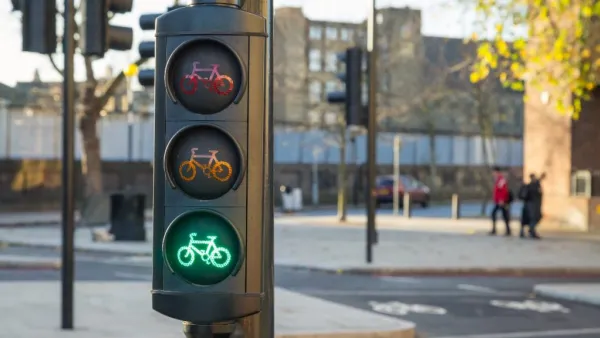Transport for London is forging ahead on several projects to collect and use more rider data. One initiative draws on WiFi connections to map users' paths through the London Underground.

As Zulfikar Abbany writes, the last several decades have seen marked improvements in London's transit network. Data initiatives are one reason why. "It started with ticketing data - things like the Oyster Card, a simple 'tap on, tap off' payment system that has given Transport for London (TfL) masses of data on customer behavior. And they have gone from that to a trial in late 2016 that used WiFi in underground station to monitor the way people move within station, how they make connections, and how that can lead to - or avoid - overcrowding."
Abbany takes comment from Lauren Sager Weinstein, TfL's Chief Data Officer, who is well aware of privacy concerns. According to Weinstein, "We took the principle of data minimization [...] So you only take the data that you need to take. You don't collect more than you need for [your stated] reason. And we were very transparent about it, so customers could opt-out if they didn't want to participate."
In addition to methods like WiFi tracking, TfL maintains an open data policy letting third parties "extend the reach" of the system using certain datasets. The policy has yielded dividends. "A recent study by Deloitte, a financial consultancy, suggests TfL's open data policy was generating annual economic benefits and savings of up to £130 million (145 million euros) for travelers and the authority itself."
FULL STORY: A public transport model built on open data

Analysis: Cybertruck Fatality Rate Far Exceeds That of Ford Pinto
The Tesla Cybertruck was recalled seven times last year.

National Parks Layoffs Will Cause Communities to Lose Billions
Thousands of essential park workers were laid off this week, just before the busy spring break season.

Retro-silient?: America’s First “Eco-burb,” The Woodlands Turns 50
A master-planned community north of Houston offers lessons on green infrastructure and resilient design, but falls short of its founder’s lofty affordability and walkability goals.

Test News Post 1
This is a summary

Analysis: Cybertruck Fatality Rate Far Exceeds That of Ford Pinto
The Tesla Cybertruck was recalled seven times last year.

Test News Headline 46
Test for the image on the front page.
Urban Design for Planners 1: Software Tools
This six-course series explores essential urban design concepts using open source software and equips planners with the tools they need to participate fully in the urban design process.
Planning for Universal Design
Learn the tools for implementing Universal Design in planning regulations.
EMC Planning Group, Inc.
Planetizen
Planetizen
Mpact (formerly Rail~Volution)
Great Falls Development Authority, Inc.
HUDs Office of Policy Development and Research
NYU Wagner Graduate School of Public Service




























